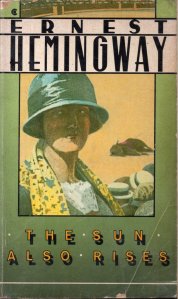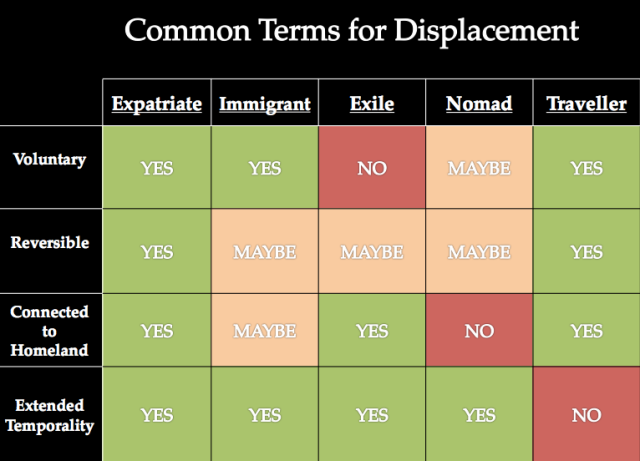You know those books you have a special relationship one, one that goes way beyond the page, winding like a thread through your life? For me, the most intense of those relationships is with The Sun Also Rises, and it’s been a bit of a weird year in our relationship.

(my copy is missing more corners than this one)
First, the copy I’ve been carrying around since college just fell apart on me. By “carrying around” I mean it came along for my “comfort book” bookshelf when I moved to Italy (is this a thing for anyone but me? I’m not at home without a small pile of books I know and love), and it moved to England with me, and back to California, and it’s the copy I relied on for my grad school application essay. I bought it used, so it was never pristine, and it’s a pocket edition, so it was always terrible for marginalia, and I have three (!) more copies on the shelf at home, but still, losing this one feels like a loss.
And second, since my late teens, wherever I was in my life, I always found it a comfort that Lady Brett Ashley was older than me. Like, my moment hadn’t yet passed to sit at the center of a Great Work of American fiction. And this is the year that changes. I’m catching up with her in September. I’m afraid it’s all down hill from here.
On the other hand, this is the year I get to write a dissertation chapter on the book, and I just got to speak about the book on the Hemingway Society’s panel at ALA, so it’s a big deal for our professional relationship. I’m generally pretty nerves-free giving conference papers, but in a room full of Hemingway aficionados I was daunted. But I made it, and people asked questions, and even posted one of my slides on multiple social media outlets (note to self: humanists like charts too!).

(a chart about expatriates)
My paper was about the way scholars have too simplistically called The Sun Also Rises a novel about expatriates. The take away: let’s stop just calling this a novel about expatriates, and look at all the other forms of mobility in the novel as well.
Anyways, it’s a work in progress, and a piece of the dissertation, but it seemed to go over well, so I’m looking forward to developing it into something I can share with the world.

